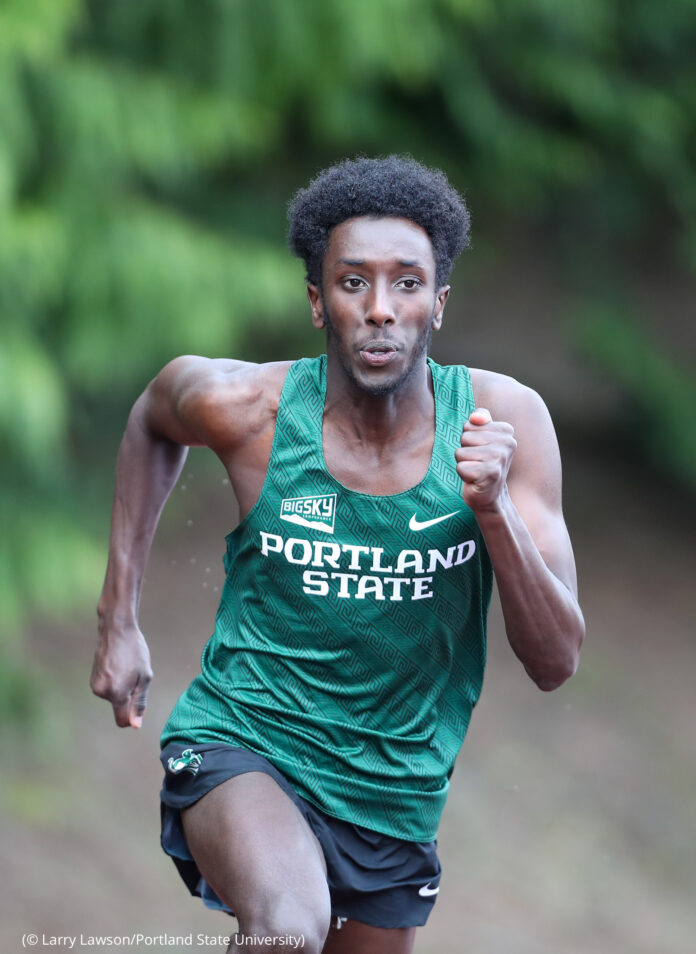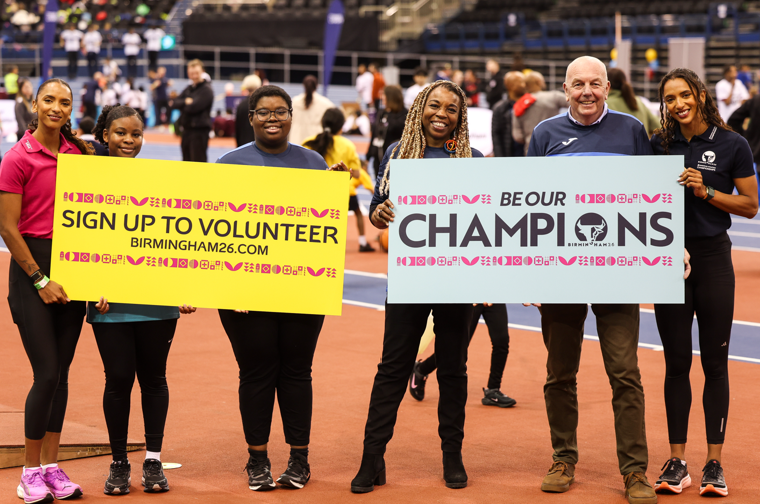As a cross-country runner at the highest level of college athletics, Abdi Ibrahim had to balance training and schoolwork, as well as his religious observances as a Muslim.
During Ramadan he woke up early to pray and eat before sunrise, then go to running practice before attending classes and studying — all while fasting. Ibrahim, a graduate student in nonprofit leadership and management at Portland State University, had to break his fast at iftar dinner shared with family and friends at home or a local mosque.
Both Ibrahim and former teammate Rashid Muse say PSU’s coaches and professors helped them succeed in sports and academics during the month of fasting. Student athletes and coaches had to devise a plan for the rigors of training during Ramadan, they said.
Ibrahim and Muse have won awards and set personal records while running races during Ramadan, when quenching hunger or thirst meaning a swish of water around the mouth before spitting it out. Ibrahim credits his teammates and coaches with helping him succeed, noting that coaches adjust training schedules when needed to allow him to meet his religious obligations.
“It’s amazing how much support we get from our teammates,” Ibrahim says. “It’s amazing that I get to do what I love to do and do Ramadan at the same time. It’s a blessing.”
Title VI of the Civil Rights Act prohibits discrimination in any activity that receives federal assistance. The Department of Education has issued guidance to help public elementary and secondary school administrators protect prayer and other religious expression on campus.
As the number of Muslims in the United States approaches 3.5 million, more schools are also recognizing Ramadan as a holiday. Some school districts close for Eid al-Fitr, marking the end of the Muslim holy month, while others make accommodations for students to observe the holiday, according to news reports.
At the Massachusetts Institute of Technology in Boston, Eid al-Fitr is considered an excused absence. During Ramadan, the college allows students to schedule exams around prayers or at a time of day when their energy level is highest.
The Muslim Students Association at George Mason University in Virginia sponsored an iftar dinner on campus on April 9. PSU’s Muslim Student Association educates other students about Islam, and the school offers a prayer centre on campus.
“If you need to pray, you can go pray,” said Muse, a senior psychology major, whose parents came to the United States as refugees from Somalia. He ran competitively until this year.
“They respect your religion and respect your way of thinking. It’s a beautiful thing, to be somewhere where I feel accepted for who I am.”
Anyone who want to study in the U.S. can find resources at EducationUSA.











